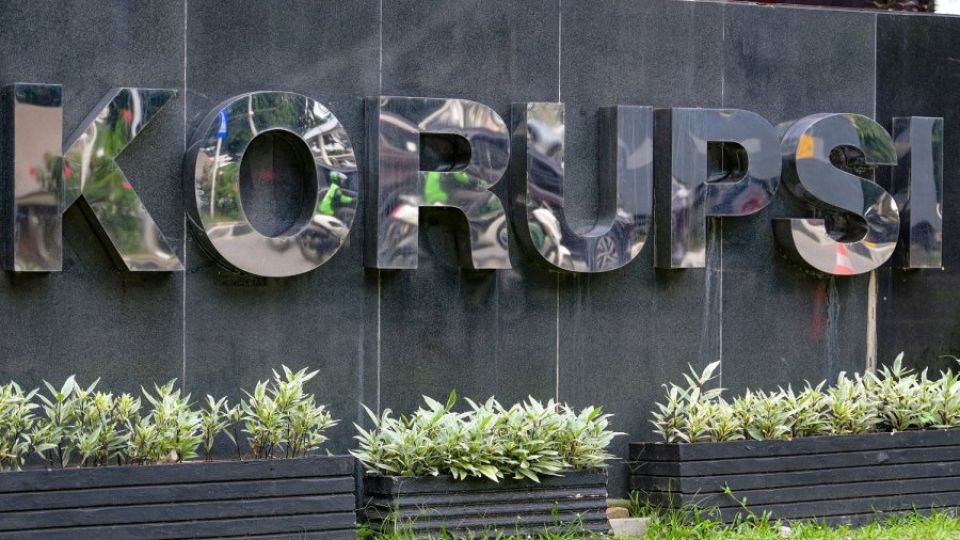June 30, 2023
JAKARTA – New allegations of embezzlement at the Corruption Eradication Commission (KPK) have added to a slew of others at the institution, including bribe-taking and sexual assault, stoking concerns that the current incarnation of the antigraft body has lost the public’s trust.
An ongoing KPK investigation into one of its own administrative workers has found indications that in 2021 and 2022 the person skimmed hundreds of millions of rupiah from travel budgets for other KPK employees.
“The alleged [corruption] was first revealed and reported by the employee’s higher-ups, since the administrative process took longer than expected and there were budget cuts for other KPK employees who were traveling on official duty,” KPK secretary general Cahya Harefa said at a press conference on Tuesday.
The KPK inspectorate conducted an initial internal investigation in response to the report and concluded that the embezzlement had cost the state some Rp 550 million (US$36,600). It was uncertain whether the employee had acted alone.
The KPK’s law enforcement division is now conducting a full investigation into the employee, who has been dismissed from the institution.
The revelation came amid another internal investigation into allegations of corruption, this time by KPK detention center employees. Initial reports suggested that some Rp 4 billion in bribes had been taken from detainees from December 2021 to March 2022.
KPK deputy head Nurul Ghufron said earlier this week that the detention officers in question had allegedly accepted bribes to smuggle cash and communication devices into one of the KPK’s four detention centers.
The graft only came to light because the KPK supervisory board was investigating one of the detention center employees eventually accused of taking the bribes for a separate sexual misconduct allegation.
At an internal supervisory board ethics hearing in April, that employee was found guilty of assaulting the wife of a KPK detainee. His punishment was a pay cut.
Questionable leadership
Activists and a lawmaker have urged the KPK to take firm action against employee misconduct for the sake of the institution’s effectiveness and reputation.
“It must be said that cases like these will continue to erode the image and level of trust the public has in the KPK,” lawmaker Arsul Sani said on Wednesday, as quoted by Tribunnews.com.
Antigraft watchdog Indonesia Corruption Watch (ICW) attributed the recent string of scandals to KPK chairman Firli Bahuri’s poor leadership. “These recent cases have shown that the KPK’s current leadership, especially Firli, has failed to lead by example,” ICW activist Diky Anandya told The Jakarta Post on Thursday.
Diky called for Firli to immediately step down from his post and called on President Joko “Jokowi” Widodo to take responsibility for the KPK’s poor performance under Firli.
“If not, the public will be increasingly convinced that the Jokowi administration has succeeded in crushing [Indonesia’s] fight against graft,” Diky added.
The KPK has seen a slew of controversies since Firli took charge in 2019, ranging from a widely criticized civic knowledge test that was used to justify firing of dozens of KPK workers in 2021 to the more recent contentious dismissal of Endar Priatoro, a police brigadier general previously stationed as the KPK’s investigations director.
The government recently decided to extend the tenure of Firli and his fellow four sitting leaders beyond the initial Dec. 20 end-date, in response to a Constitutional Court ruling in late May that extended the tenure of KPK leaders from four to five years.
Diky said it was important for the KPK to quickly address ongoing problems with its workforce and maintain professionalism ahead of the 2024 elections.
“To hold a healthy election, the public sorely needs its law enforcement institutions to be clean and free of conflict of interest,” he added.
In the latest Corruption Perception Index published by Transparency International, Indonesia’s score slid four points to 34, the country’s biggest decline in 25 years and one of the worst year-on-year performances in the region.
Transparency International Indonesia (TII) flagged the “political risk service index”, one of eight sources used to compile the CPI, as the key contributor to the drop in the overall score, indicating that graft, bribery, illicit kickbacks and conflicts of interest among decisionmakers were increasingly prevalent.


